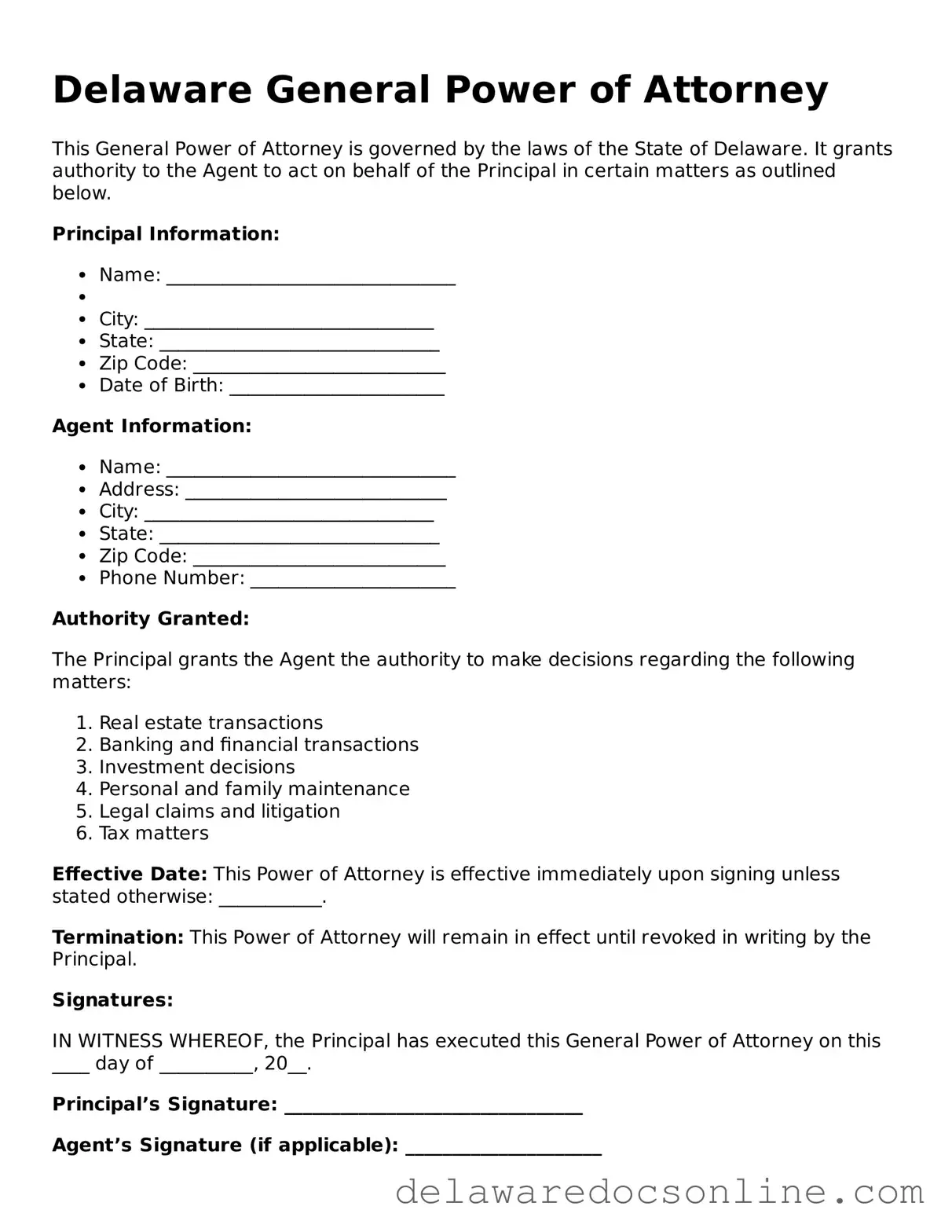Attorney-Verified General Power of Attorney Document for Delaware
The Delaware General Power of Attorney form is a legal document that allows an individual, known as the principal, to appoint another person, referred to as the agent, to make decisions on their behalf. This form grants broad powers, enabling the agent to manage financial and legal matters, ensuring that the principal's interests are protected even when they are unable to act for themselves. Understanding how to properly execute this document is crucial for anyone looking to secure their financial future.
Make Your General Power of Attorney Now

Attorney-Verified General Power of Attorney Document for Delaware
Make Your General Power of Attorney Now

Make Your General Power of Attorney Now
or
⇓ PDF File
Need speed? Complete the form now
Edit, save, download — finish General Power of Attorney online with ease.